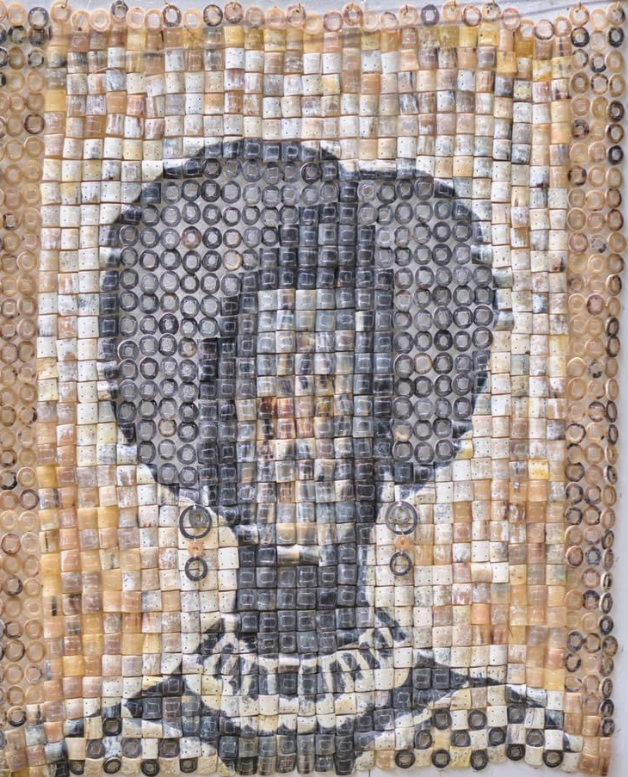Where is the Man?
The story of the woman caught in adultery, found in the Gospel of John (John 8:1-11), is a powerful narrative that reveals Jesus Christ’s heart toward the vulnerable and marginalized. It speaks to justice, mercy, and the often-unnoticed societal inequities. As I reflect on this account, we must ask some pressing questions about the injustices faced by the vulnerable and the selective application of moral and legal standards.
The Scene: A Woman Condemned
The narrative begins with a group of scribes and Pharisees bringing a woman to Jesus. She had been caught in the act of adultery; a crime punishable by death according to the Mosaic Law. They publicly humiliate her, thrusting her into the center of a gathered crowd, not out of a sense of justice but as a trap for Jesus, hoping His response would provide grounds for accusing Him (John 8:3-6).
This moment is heavy with tension. A life hangs in the balance, not just because of her guilt but because of the malice and hypocrisy of those who wield power. Yet, a glaring inconsistency emerges in this story—where is the man involved in this act of adultery?
The Missing Man: A Question of Justice
Both the man and the woman caught in adultery were to be punished severely and equally according to the Law. For example, Deuteronomy 22:22 states, “If a man is found sleeping with a woman who is not his wife, both the man who slept with her and the woman must die.” Similarly, in Leviticus 20:10, both parties are held accountable. However, in this narrative, only the woman is brought before Jesus, facing the threat of execution. The absence of the man raises significant questions about the application of justice and the selective enforcement of the Law. This selective punishment reveals a deeper societal issue: the tendency to target the vulnerable while shielding others from accountability disproportionately. The woman, likely marginalized and powerless, bears the total weight of condemnation, while the equally guilty man is nowhere to be found. This glaring injustice is not just an oversight; it reflects a systemic issue where the powerful and privileged escape the consequences of their actions while the vulnerable suffer alone.
Jesus’ Response: Mercy Triumphs Over Judgment
In the face of this injustice, Jesus’ response is incredible. He needs to engage with the legalistic demands of the Pharisees immediately. He stoops down and writes in the dust (John 8:6). The content of His writing is unknown, but His actions convey a message of calm reflection and silent rebuke to the accusers. When pressed for an answer, Jesus speaks words that have echoed through the ages: “Let any one of you who is without sin be the first to throw a stone at her” (John 8:7). With this statement, Jesus shifts the focus from the woman’s guilt to the universal need for grace and mercy. His words echo the sentiments of Romans 3:23, “for all have sinned and fall short of the glory of God,” reminding us of our shared human frailty.
One by one, the accusers depart, beginning with the oldest, until only Jesus and the woman remain. In this moment of vulnerability, where the woman’s life is at stake, Jesus does not condemn her. Instead, He extends mercy, telling her, “Neither do I condemn you. Go now and leave your life of sin” (John 8:11). Jesus upholds the call to righteousness but does so through the lens of compassion and restoration rather than condemnation. His response reflects the principle found in James 2:13, “Mercy triumphs over judgment.”
A Call to Justice and Mercy
The story of the woman caught in adultery serves as a powerful reminder of the need for justice that is equitable and mercy that is transformative. It challenges us to examine our lives and societies to see how we may be complicit in systems that target the vulnerable while excusing the powerful. We must ask ourselves: where are the missing men in our narratives of justice? Where are those who escape accountability while others bear the total weight of condemnation? In our families, communities, and institutions, are we more concerned with preserving our sense of righteousness than extending grace to those in need?
Jesus’ example calls us to be agents of justice that does not discriminate and of mercy that seeks to restore rather than destroy. It is a call to stand against the injustices that target the vulnerable. It is time we advocate for those voices which those with power and authority have silenced. The time has come for us to extend the same grace we have received from Christ to others, especially the vulnerable.
In a world where the powerful often escape judgment, let us be reminded of the words of the prophet Micah: “He has shown you, O mortal, what is good. And what does the Lord require of you? To act justly and to love mercy and to walk humbly with your God” (Micah 6:8). May we, like Jesus, stand against the injustices faced by the vulnerable and offer a hand of mercy and restoration to those in need.
Reflection By: Chap. Evans Baah Mintah (Rev)
